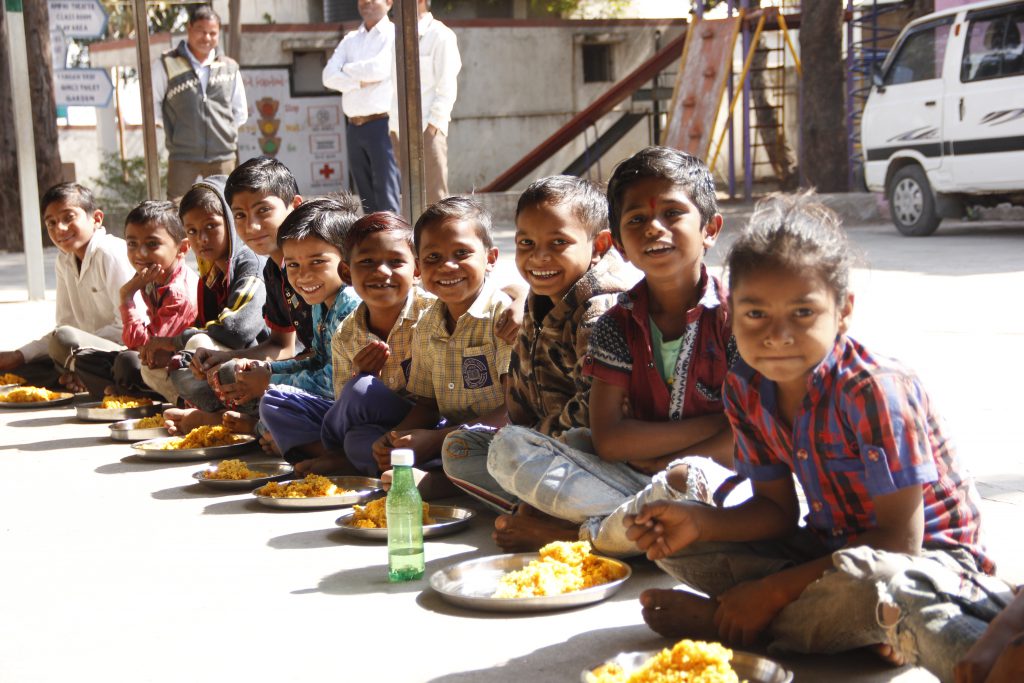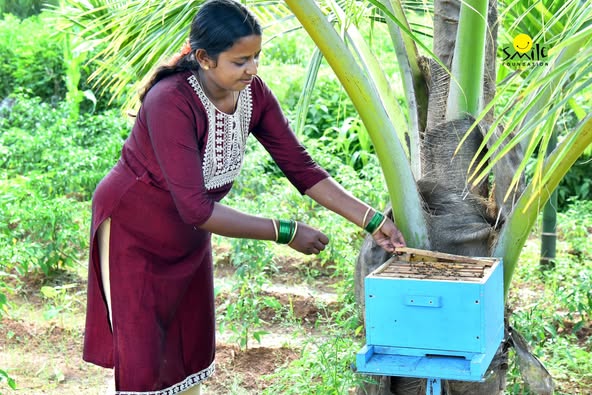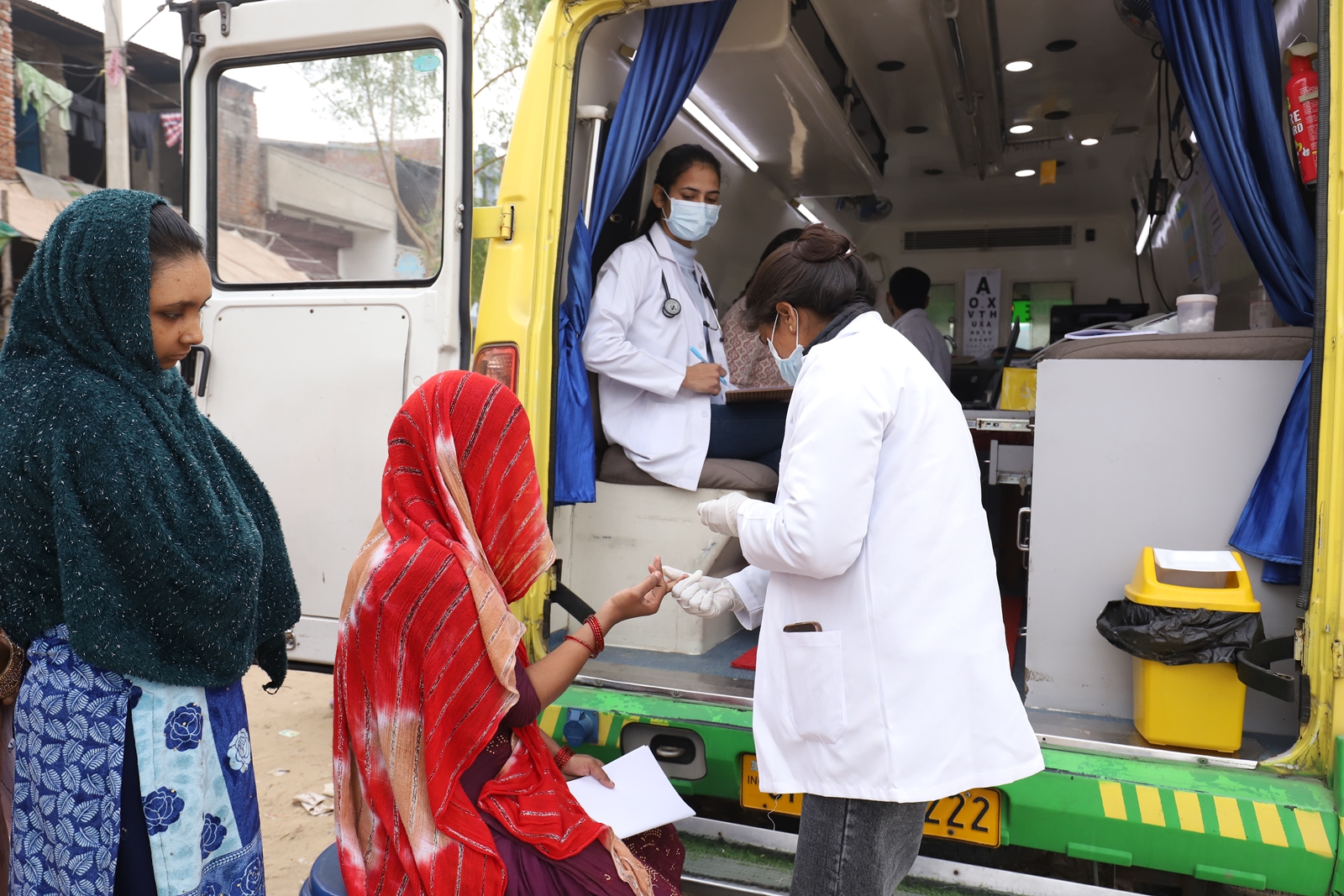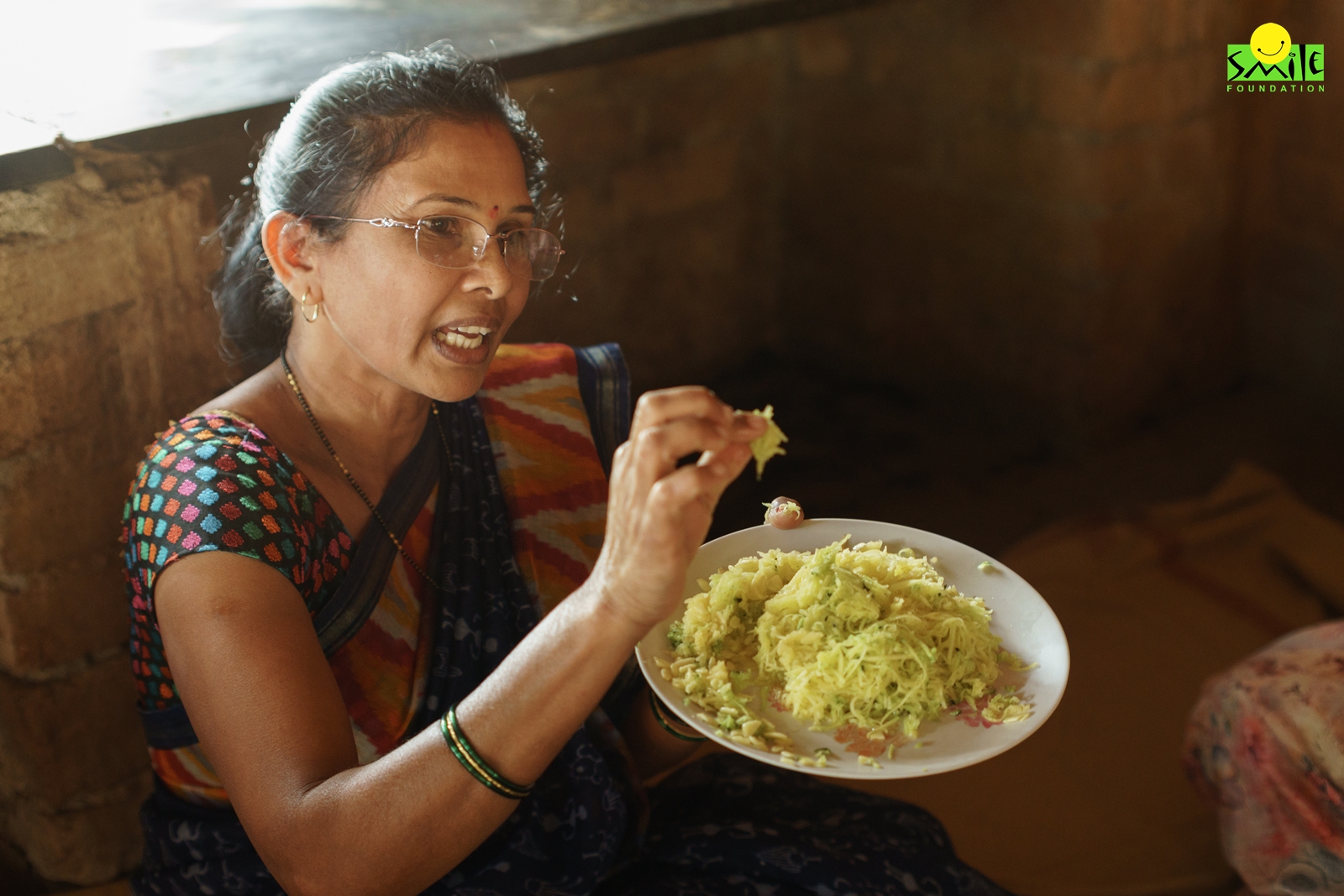When six year old Kiran Waghe joined the Mission Education centre at Kalyan in Maharashtra, her teachers took note of her extreme health condition. She was visibly malnourished, looked much smaller for her age and was covered in dirt.
On interacting with Kiran’s parents, her teachers learnt that the family was lucky to get even one full meal in a day. Her parents work at a nearby brick kiln and toil hard to feed their daughter. Kiran often accompanied her parents to work and had got into a habit of eating mud, which was also adversely affecting her health.
Because of her weakness, Kiran was less responsive in class and never participated in any activity either. Over the year, her health problems increased and she would often take leave, missing out on her classes. Her teachers realized that the lack of proper nutrition, hygiene and subsequent ill health was impairing Kiran’s attention span and learning abilities, and the damage could be permanent.
Kiran’s case is not unique. Malnutrition is more prevalent in India than in Sub-Saharan Africa. One in every three malnourished children in the world lives in India. According to the National Family Health Survey (NFHS IV), 38% of all children below the age of five have stymied growth and are too small for their age, 46% are underweight and 16% are emaciated.
A critical issue in itself, lack of nutrition, has repercussions in every sphere of child development, as it stunts the physical as well as mental growth of children. Malnourished children are less likely to perform well in school, even to regularly attend school. This leads to low confidence levels and eventually drop-outs.
Understanding that nutrition and health form an important aspect of a child’s growing up years, and can have a huge impact on her/ his education, Smile Foundation has always included them as integral aspects of the Mission Education programme. Nutritious meals are provided to children every day and health camps are held every quarter to ensure the holistic development of children. This has not only helped in improving the health status of children, but also in improving their learning outcomes over time, and improving attendance and retention in classrooms.
To complement the provision of nutrition and health facilities at the centres, awareness generation among the parents and the larger community is also done. Low awareness about the importance of health and nutrition among the socio-economically marginalized communities, like in Kiran’s case, is also a major reason for the vulnerable health condition of children.
Busy earning daily wages to help their families survive, most parents never consider health and nutrition to be a priority. While all of them want their children to be educated, healthy and have a bright future, few of them know that bringing basic changes in their eating habits could ensure all this. Never having been to school and having bare minimum knowledge of hygiene practices, they never think that most diseases can be prevented by including the simple act of hand washing in their daily routine.
To address this gap, sessions on the importance of health, personal hygiene and nutrition are regularly conducted, along with innovative activities like street plays and songs to engage the people and help them grasp the message easily. Workshops are held for mothers where they are taught about growing their own kitchen garden, nutritious ingredients that are commonly available but ignored, and preparing low cost and no cost nutritious food recipes.
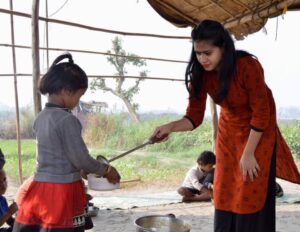
As an extension of its efforts, Smile Foundation has integrated nutrition awareness in its health and women empowerment programmes, with special focus on mothers, school children and adolescent girls. Catering specifically to their particular needs, awareness sessions, workshops and one-on-one counselling are held on subjects such as nutrition for growth, foods that enhance immunization, combating anaemia, diet for expecting and lactating mothers, and nutrition supplements.
Today, India is riding on a promising tide of economic and social development, but this only remains a hollow projection when our children do not have access to even the most basic human needs, like nutrition and education. Our children will lay the foundation for our country’s future, but this might be too heavy a responsibility for their weak shoulders. We must come together to nurture, nourish, educate and empower our children, to help build a healthy, progressive nation.
To know more about Smile Foundation’s work on nutrition visit https://www.smilefoundationindia.org/plate-half-full/



